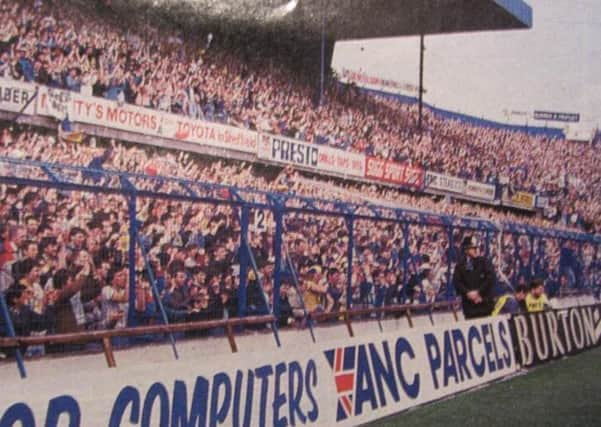Damning tale of unheeded lessons from Leeds United's FA Cup semi-final with Coventry in 1987


One of many damning revelations at the Hillsborough inquests was the story of how Peter Wright, the chief constable of South Yorkshire Police, unilaterally replaced his matchday commander, chief superintendent Brian Mole, just 19 days before the stadium disaster in 1989.
Mole’s duties passed overnight to David Duckenfield, the officer whose failings were adjudged by a jury at the inquests in Warrington to have directly contributed to the death of 96 Liverpool fans in Sheffield 27 years ago. The jury, which on Tuesday decided that those fans had been unlawfully killed, heard how Duckenfield’s inexperience and lack of knowledge of Hillsborough – culminating in a fateful decision to open a gate outside the Leppings Lane end – was a fundamental cause of the tragedy.
Advertisement
Hide AdAdvertisement
Hide AdTwo years earlier, Mole had been the matchday commander in charge of Leeds United’s FA Cup semi-final against Coventry City at the same ground. Supporters who attended that game, during which United’s crowd were housed in the same pens where almost 100 Liverpool fans died, tell tales of severe crushing and inadequate crowd management and find themselves using the same word: lucky. It might be that some of Mole’s involvement, not least his decision to delay kick-off as congestion built up outside the stadium, averted the events of 1989.
The 1987 semi-final, played on Sunday, April 12, was the first to be staged at Hillsborough in fully six years. The Football Association had opted for other venues after an incident in 1981 where 38 Tottenham Hotspur fans were injured on the Leppings Lane terrace during a last-four tie against Wolverhampton Wanderers. Supporters complained of chaos outside the ground as they tried to get through a limited number of turnstiles in time for the start of the match. During the game, some suffered broken arms and another a broken leg.
South Yorkshire Police claimed the six-year gap between semi-finals at Hillsborough was down to two reasons: the fact that clubs involved at that stage of the FA Cup were not located close to Sheffield and complaints from local residents about those matches. The Hillsborough Independent Panel, however, concluded in 2012 that “clearly the 1981 incident and the disputes that followed had a bearing on this decision.”
In 1981, the lower tier of Leppings Lane was an open terrace. By the time of Leeds’ visit in 1987, and as a result of changes supposedly intended to improve the handling of crowds, fences had been installed, separating the terrace into separate pens. Leeds were allocated that area of the stadium while Coventry took the Kop and the Football Association suspended its all-ticket policy on United’s away fixtures to allow for open sale. The ground opened at 9.30am for a 12.15pm kick-off but, as happened in 1981, the start was delayed by Mole for 15 minutes with thousands of fans still to clear the turnstiles.
Advertisement
Hide AdAdvertisement
Hide Ad